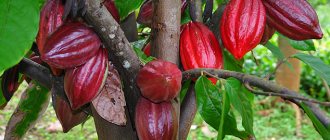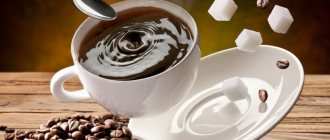Caffeine and its artificial analogue (sodium benzoate, preservative E-211), used in the food industry, can cause deterioration in health. With regular and excessive consumption of coffee drinks and products containing caffeine (for example, energy drinks), there is a high probability of developing pathologies of the gastrointestinal tract, central nervous system and cardiovascular system.
Long-term consumption of coffee is the cause of gastritis, colitis, stomach ulcers, hypertension, as well as some neurological and mild mental disorders. Therefore, depending on the consequences of excessive coffee consumption, a cardiologist, gastroenterologist, neurologist, neuropsychiatrist or psychotherapist may be involved in the treatment of caffeine addiction.
In the absence of somatic pathology, treatment for caffeine addiction in our clinic is carried out by psychotherapists or hypnologists. On the recommendation of a doctor, the course of treatment can be supplemented with sessions of relaxation therapy, therapeutic massage or acupuncture.
People who abuse coffee often experience some of the symptoms of caffeine overdose: insomnia, frequent headaches, dizziness, nervousness, mild excitability and increased anxiety.
Formula
Chemical formula C8H10N4O2.
Chemical name 1,3,7-Trimethylxanthine (and as sodium benzoate).
Characteristics of the substance: an alkaloid found in tea leaves and coffee seeds.
Appearance: white needle-shaped crystals or white crystalline powder, has a bitter taste, no odor. Caffeine is difficult to dissolve in alcohol, but easily dissolves in boiling water. Dissolves slowly in cold water.
https://youtu.be/eUA1HaLCRdA
Caffeine tablets
Caffeine sodium benzoate is white tablets with a bitter taste, available from pharmacies by prescription.
One tablet of the medication contains 200 mg of active substance. Anhydrous lactose is an auxiliary agent necessary to ensure that the substance is quickly absorbed into the bloodstream.
The tablets help increase mental and physical performance, stimulate motor activity and mental activity. Taking it little by little helps improve the stimulation effect, but with increased dosages, depression of the central nervous system occurs.
The dosage of the drug is prescribed by the doctor, based on the patient’s condition and age.
Pharmacological effect
- Psychostimulant
- Analeptic
- Cardiotonic
15 minutes after consumption, a surge of energy and strength appears, fatigue and drowsiness disappear. But at the same time the pulse increases with breathing.
Contraindications
It is worth considering that sometimes an alkaloid is contraindicated:
- For sleep problems
- Increased excitability
- To old people
- For arterial hypertension
- Hypersensitivity to the alkaloid and excipients
- Glaucoma
- Children and persons from 18 to 25 years old
- During pregnancy and breastfeeding
The effect of the substance on the body
A person starts his morning with an invigorating drink. It is chosen because of the properties of the solution that are required for the activity and functioning of the human body:
- When the substance enters the body, it is sent by the blood to the brain, where it has a stimulating effect - which promotes clarity in the head.
- The activity of the brain is stimulated - memory and the ability to quickly find the right solution improves.
- Muscle tone increases, which is what a person needs in the morning.
- The speed of metabolic processes increases, which contributes to weight loss.
- Caffeine provokes the production of dopamine, adrenaline and serotonin - hormones responsible for mood and alertness.
- Proven to have an effective effect on the digestive process.
- Blood circulation through the vessels increases, which accelerates the replenishment of tissues with essential microelements.
- The symptoms of drowsiness and fatigue are eliminated.
Decaffeinated coffee: harm and benefits
A cup of coffee gives people energy and fills them with positivity. The taste of coffee is impeccable, the aroma is wonderful, but there are people who are prohibited from caffeine.
Such people continue to drink their favorite drink, but without caffeine. The smell and even taste of this drink is the same as that of regular coffee, but at the same time it is practically harmless. But the production of decaffeinated coffee has its own characteristics. Therefore, you may wonder whether a caffeine-free drink is so harmless.
How to obtain the product
Decaffeination is performed in various ways:
- Treated with carbon dioxide, the best method. No solvents are used here, and the coffee retains its taste. Steamed coffee beans are treated with carbon dioxide, during which the caffeine evaporates.
- Removal by dissolution. Coffee beans are placed in hot water, where a chemical is added. Afterwards the grains are dried. This removal option is cheaper, but at the same time the taste of the drink deteriorates and it becomes unsafe.
- Swiss soaking method. The grains are soaked for a long time, the water disappears, and the taste of the drink is lost. Afterwards, the caffeinated liquid is purified using a filter, and new beans are added to enrich the taste. The resulting coffee is safe for health, but due to the high cost of the method, the cost of such a product is also high.
Benefits of decaffeinated coffee
- Does not increase blood pressure or pulse
- No negative effect on the central nervous system
- Reduces the likelihood of developing diabetes mellitus, as it helps accelerate the dissolution of glucose
- Cognitive abilities improve, because in addition to caffeine, the drink contains many chemical compounds
The harm of caffeine-free drinks
- Harmful to the body if caffeine is removed using a solvent
- Helps flush calcium out of the body
- Does not have a tonic effect
- Frequent consumption can lead to gastritis
How much caffeine is in coffee
The amount of enzyme may vary, depending on the type of grain. For example, Robusta has 120 mg of alkaloid, and Arabica has 60 mg. But here we are talking about pure raw materials. On store shelves there is coffee with an alkaloid content of approximately 120 mg. To avoid overdose, a person is not recommended to drink more coffee than a certain amount.
What are the dangers of drinking too much coffee all the time?
We described the first symptoms indicating an excess of coffee in the body. If you do not pay attention to the body’s signals and continue to drink the drink in the same way, serious consequences may arise:
- The pressure will begin to rise steadily. It cannot be normalized by taking a pill, because caffeine neutralizes the effect of the medicine.
- The risk of developing cardiovascular diseases increases. Our “engine” already works quickly, and if it is also stimulated, forcing it to beat even faster, then we can get a heart attack as a “token of gratitude.” This is the worst consequence of sustained caffeine abuse.
- Headaches will begin to bother you. Moreover, the migraine will be so severe that not a single drug will help. Constantly experiencing severe pain, a person simply will not be able to work normally; he will feel internal anxiety, tension and irritability.
- Glaucoma develops.
- The vessels narrow, which is bad when the heart is working vigorously and the blood flow is active.
- Coffee aggravates the situation for people with gastrointestinal diseases.
- Over time, your teeth will turn yellow and your skin will become looser and grayer.
- Your nails will peel and your hair will fall out.
It is worth paying attention to such factors under which it is not recommended to drink coffee:
- drinking a drink before or after drinking alcohol - intoxication will become even stronger;
- drinking coffee along with nicotine is a high risk of developing hypertension;
- coffee and sedatives are contradictory substances, which means that the sedative simply will not work, because it is neutralized by caffeine.
The worst consequence of excessive coffee consumption is death as a result of exhaustion of the body due to stable heart failure and respiratory failure.
Overdose
A safe dose of caffeine for the body is no more than 400 mg per day. Do not overuse the aromatic drink. Overdose can lead to various pathologies. In case of poisoning, the central nervous system, cardiovascular system and gastrointestinal tract are affected.
Signs of overdose:
- Headache
- State of anxiety
- Increased sensitivity
- Tachycardia
- Increased blood pressure
- Trembling limbs
- Nausea, vomiting
- Stomach pain
- Muscle spasms
- Confusion
- Breathing disorders
In acute poisoning, loss of orientation and epilepsy occurs, which is accompanied by seizures and convulsions. When the first symptoms of intoxication appear, it is important to begin cleansing the body as soon as possible and call an ambulance.
First aid for poisoning
Severe poisoning should be treated under medical supervision. First aid provided in a timely manner will help save the victim. It is necessary to ensure a flow of fresh air and remove tight clothing from the patient.
How to remove caffeine from your body at home:
- Carry out gastric lavage with regular boiled water (chilled)
- Take adsorbents (Smecta, activated carbon)
- Drink plenty of fluids; use of rehydration agents is permissible
If the above steps do not help, you should rush to call for medical help.
Sports load
Athletes often abuse the drug to increase their own performance during training. This is not recommended. If you need to carry out such a procedure, you need to follow a number of rules that will help prevent unwanted consequences:
- Consume food containing the substance within 60 minutes. before training;
- You are allowed to drink only 2 glasses of solution;
- Energy products contain sugar, which negatively affects your well-being - it is recommended to exclude them from the diet;
- The element causes dehydration - it is recommended to replenish water deficiency by drinking plenty of water.
Following simple rules will prevent poisoning and deterioration in physical performance.
Contents in green and black tea
Caffeine in tea is present along with tannin. When brewing a drink, the substance is not released entirely, so the drink has a gentler effect on the body. Tannin prevents the psychostimulant from being quickly absorbed and promotes its rapid elimination.
Black tea contains approximately 70 mg of alkaloid per 200 ml. Green tea contains more psychostimulants, containing approximately 85 mg per cup.
One cup of jasmine green tea contains 60-70 mg of caffeine.
The amount of alkaloid in tea depends on:
- From the type of tea
- Growing conditions
- From flavoring additives
Treatment
In principle, there is no antidote for caffeine. Therapy for intoxication consists of cleansing, normalizing diuresis, and improving the functioning of the cardiovascular system. If the symptoms of a coffee overdose are relieved, this does not mean that the treatment is complete. It is necessary to prevent delayed consequences that develop over time. Antipsychotics, which are used in the treatment of psychosis and central nervous system stimulation, will provide assistance.
Ammonia poisoning
If the patient has fallen into a coma and the risk of death is high, infusion therapy is carried out with drugs that relieve psychomotor agitation, ensuring blood flow to the muscles that regulate blood pressure. A blood transfusion may be recommended. Comprehensive treatment developed individually allows you to get rid of the consequences of poisoning. After a few weeks, the body cleanses itself.
Caffeine in energy drinks
People often drink energy drinks to stay alert for a long time.
An ordinary energy drink contains approximately 80 mg of a psychostimulant, and this, as is known, is only 1/5 of the permissible norm. However, it is worth noting that energy drinks contain other components besides caffeine, so you do not need to drink 5 cans a day.
But there are sports energy drinks that contain 215 mg of psychostimulant. Thanks to this drink, people can stay alert for 5 hours.
Is there a lethal dose of this drink?
If we talk purely theoretically, then this is possible. True, to do this you will have to drink a huge dose of coffee in a very short period of time, and this is physically impossible. But we should not forget that each organism is unique and it is impossible to say unequivocally how exactly it will react. But death will definitely not occur from drinking 2-3 cups a day. Like coma.
For you:
A little helper for creating milk foam in cappuccino
Addiction
Caffeine addiction occurs in people who consume more than 400 mg of caffeine (4 cups of natural coffee) daily. You can overcome coffee addiction on your own with a certain amount of willpower.
What factors contribute to the development of addiction:
- Not getting enough sleep
- Artificial lighting
- Tobacco smoking
- Working at the computer
Signs of addiction:
- Irritation if you can’t drink a drink when you want
- Thoughts about coffee lift your spirits
- Headache goes away after a cup of invigorating drink
- Unreasonable anxiety and fears
- Confusion of consciousness if a new “portion” is not consumed in a timely manner
Addiction can lead to health problems. However, it is necessary to give up your favorite drink gradually to avoid withdrawal symptoms.
Coffee is good for you, but consuming it in excess is dangerous to your health.
The measure is different for everyone
According to scientists, addiction to coffee and susceptibility to its main component are determined by genes involved in caffeine metabolism.
In other words, how much coffee you can drink per day without harm to your health depends on the body’s tolerance to the alkaloid.
Remember the “record” of the creator of great novels described at the beginning. Trying to approach it, the vast majority of amateurs will leave the race after 6 cups, feeling a surge of heat and dizziness. The seventh portion will lead to visual or auditory hallucinations and other signs indicating an overdose of coffee.
But for small fans, their health may deteriorate after the first tasting of a very strong drink.
From 10 cups of coffee, ≈1 g of caffeine enters the body - a dose that causes intoxication.
Serious consequences, even death, are possible if you drink a lot of coffee in the presence of cardiovascular pathologies, alcohol intoxication, conditions associated with acclimatization or rapid change of time zones.
The caffeine concentration sufficient to kill is ≈150-200 mg per 1 kg of weight.
Based on this, the lethal dose of coffee varies, depending on body weight and caffeine sensitivity, within the range of 60-100 cups of drink per day.
Such calculations are rather arbitrary, since they are based on the pharmacological action of “pharmacy” caffeine, a water-soluble bitter powder obtained from plant raw materials.
In fact, it is almost impossible for people who do not have chronic diseases to die from coffee:
- To achieve a lethal concentration of the alkaloid, you should “swallow” 60-80 cups of coffee = 12-16 liters of liquid over 2-4 hours. The body will “protect itself” from excessive amounts of fluid and increasing intoxication by vomiting.
- Tannins from coffee beans “bind” the mucous membranes of the gastrointestinal tract, making them less permeable. The components of the drink stop being absorbed.
- Thanks to the diuretic effect and stimulation of peristalsis, all excretory systems will work in “emergency mode”. Severe diarrhea is unlikely to motivate you to continue the “experiment.”
However, each “extra” portion of it negatively affects heart rate and blood pressure, provokes constipation and even changes the level of hormones responsible for ovulation and fertilization.
What happens if you drink a lot of coffee at once, and how painful does systematic abuse “hit” your well-being?











